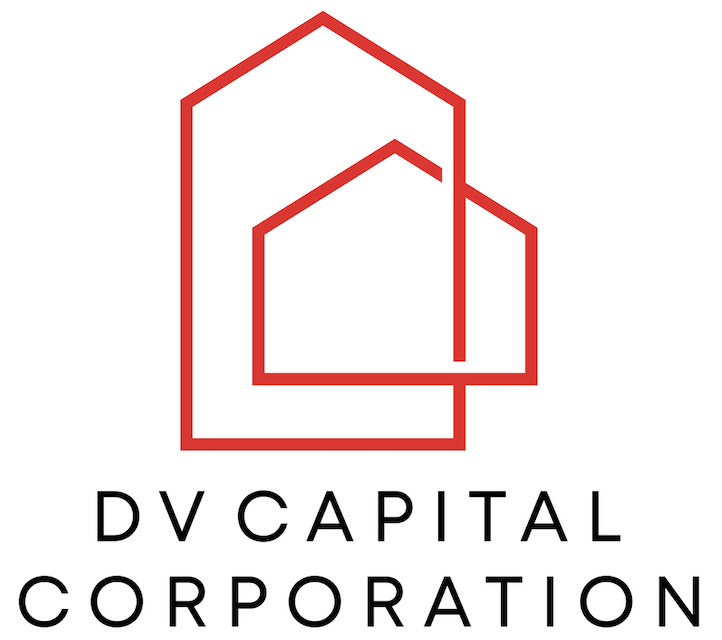DV Capital: Canadian Mortgage Glossary
Mortgage Glossary
Mortgage Broker & Private Lender Services.
Ontario, British Columbia & Nova Scotia.
“The mortgage pros!”
R.E. - Canadian Homeowner

AACI
An appraiser with an Accredited Appraiser Canadian Institute (AACI, P.App) designation may appraiser any type of property including resland, agricultural property, machinery, equipment, and commercial and residential buildings.
Accelerated Payment
An accelerated weekly or bi-weekly payment allows you to apply more money towards your mortgage than with a regular monthly mortgage payment. Accelerated payments allow you to make the equivalent of one extra monthly payment per year, in turn saving you interest charges.
Acceptance
When the seller of a real estate asset receives an acceptable offer to purchase from a potential purchaser, the seller will provide the buyer with a a written acceptance of their offer.
Accrued Interest
Interest that has been accrued, not yet paid, and will be owed at the discharge of your mortgage.
Adjustable Rate Mortgage (ARM)
An adjustable rate mortgage is a type of mortgage where the interest rate fluctuates based on the Bank of Canada prime interest rate, also referred to as a variable rate mortgage. The mortgage payments and amortization may change to reflect the rate adjustments.
Administrators License
In order to collect mortgage payments from a borrower on behalf of a mortgage lender or investor, or in order to enforce mortgage payments behalf of a mortgage lender or investor, you must apply for a Mortgage Administrators license from the Financial Services Regulatory Authority (FSRA).
'After Repair' Value (ARV)
The after repair or after renovation value simply refers to the anticipated property value once improvements are 100% complete.
Agreement of Purchase & Sale (APS)
An Agreement of Purchase and Sale is a written contract between a seller and a buyer for the purchase and sale of a real estate asset. The APS will specify the purchase price, closing date, conditions and clauses pertaining to the transaction.
Agricultural Mortgage
A mortgage product designed to help those wishing to purchase or refinance their agriculturally zoned property often located in a rural location, on acreage, and used as a working or hobby farm.
Alimony
Certain mortgage lenders will accept alimony payments and allow you to this use this income to qualify for a mortgage. On the other hand, if you are responsible for making alimony payments, this amount will be deducted from your gross income for qualifying purposes.
Alternative Mortgage
Simply put, a mortgage for a property or client that does not conform to institutional underwriting guidelines. Often boiling down to the location and marketability of the real estate asset as well as the income, credit, and debt service levels of the borrower. Bank lenders support alternative mortgage products and when they cannot, private mortgage lenders fill the void.
Amortization
A mortgage amortizations refers to a fixed payment schedule when followed will pay off your entire mortgage including principal and interest. Naturally, the longer the amortization period, the lower the mortgage payment will be as payments are spread out over a longer period of time.
Amortization Schedule
An amortization schedule will provide you with a precise breakdown of all scheduled mortgage payments and a breakdown of how both principal and interest is being paid down over each corresponding payment until the loan is paid off in full.
Amendment
Any formal document that discloses any material change to the mortgage agreement that must be signed and acknowledged by all respective parties.
Annual Mortgage Statement
An annual mortgage statement is sent to the borrower each year detailing the terms of their mortgage, the principal amount paid down during the previous the year, and if the mortgage lender collects realty taxes, the amount paid.
Annual Percentage Rate (APR)
The APR is the interest costs, plus the non-interest costs required to obtain the mortgage, expressed as a percentage of the average mortgage balance over the term of the mortgage. Note that this differs from the contract rate.
Appraisal
An appraisal is an estimate of value that is determined by a qualified appraiser who is recognized by your prospective mortgage lender. An appraiser uses different approaches to arrive on what is referred to as fair market value. The three common approaches are the direct comparison approach, the income approach, and the cost approach.
Appraiser
A qualified and licensed individual who conducts real estate valuations for mortgage financing and other purposes under the scope of their assignment.
Appraisal Institute of Canada (AIC)
The AIC is Canada’s leading real property valuation association with over 5,400 members across the country and around the world. For the last 80 years, AIC has worked collaboratively with its 10 affiliated provincial associations to grant the distinguished AACI and CRA designations.
Approval
The mortgage document that stipulates the mortgage amount that you qualify for, as well as the interest rate, terms, and conditions of the contemplated mortgage loan approval.
Architectural Drawings
When seeking a construction loan to finance your build, you will be required to provide a copy of architectural drawings pertaining to the property site and build.
Articles of Incorporation
A legal document necessary to incorporate a business either provincially or federally that sets out the name of the directors and officers, as well as the corporations purpose and regulations.
'As Is' Value
The ‘As Is’ value of a property represents the value prior to the renovation or construction of the property. Often times your mortgage lender will require this value in conjunction with a secondary appraisal value referred to as the ‘After Repair’ Value or simply the ‘When Complete’ Value.
Asking Price
The amount of money that the real estate seller is asking to receive to purchase the property.
Assessed Value
Not to be confused with the appraised value, a municipal or provincial government determines a property value for the purpose of levying property taxes.
Asset
An asset represents something of value that one owns including real property, personal belongings, cash, and investments.
Asset Based Lending
A financing facility that only or mostly focuses on the strength of the underlying security as opposed to the strength of the guarantor. An example of a real estate asset based loan would be a loan approved on the merit of the real estate marketability and the amount of equity in the property without formal income and credit requirements.
Assignment
The act of a mortgage being transferred from one person or mortgage lender to another.
Assumption
A mortgage assumption is the act of a purchaser assuming an existing mortgage that currently belongs to the owner of the subject property. One benefit to the purchaser would be to secure what might be a low interest rate, and for the vendor to avoid paying a prepayment penalty to break the mortgage, assuming that the mortgage is assumable.
Average Interest rate
The average interest rate represents the average interest rate between more than one mortgage. For instance, a first mortgage balance of $400K @ 2.49%, and a 2nd mortgage balance of $50K @ 6.99% works out to an average interest rate of 2.99%.
Average Loan to Value (LTV)
An average loan to value represents the total loan amounts, including the contemplated loan amount, divided by the total value of the to be secured real estate assets, expressed as a percentage.
Bad Credit
A mortgage applicant with imperfect credit often has a low credit score, late repayment history, or previous insolvency.
Balloon mortgage
Instead of making scheduled mortgage payments, zero payments are made during the term, causing the payments to balloon into a required final lump sum payment at the end of the mortgage term.
Bank of Canada
The BoC is the nation’s central bank with its principal role to promote the economic and financial welfare of Canada, including monetary policy, financial systems, currency, and funds management.
Bankuptcy
A formal process whereby debtors who cannot meet their obligations sign over their assets to a licensed insolvency trustee whose role it will be to sell off the assets to satisfy the outstanding debts. Once the debtor is formally declared bankrupt, lawsuits by creditors are stayed and garnishments against debtors’ salaries stop.
Bidding War
Multiple offers to purchase real estate that often results in the sale of the property over the asking price and in some cases over market value depending on the desire of the purchasers.
Blanket Mortgage
A blanket mortgage is a mortgage that is registered against more than one property owned by the same borrower. This is often used to allow purchasers to use the equity in their existing properties as opposed to bringing cash to the purchase. Similarly, a blanket mortgage can allow a property owner to access the equity in one mortgage transaction against multiple properties as opposed to multiple individual mortgage transactions.
blueprints
Construction blueprints, also referred to as construction plans are technical drawings created by architects and engineers that indicate the size, dimensions, floor plans. and specifics of the build.
Bridge Loan
A bridge loan is a temporary financing facility used to purchase additional property without the sale of an existing property. The existing property, either for sale or sold with a future closing date after the purchase date of the new problem, is used as additional security along with the new purchase property. The loan is either paid down or in full from the proceed of the sale.
Broker Opinion of Value (BOV)
Often used to ascertain a value of a property without a formal appraisal, or, used as a second opinion to an appraisal.
Building Permit
A permit that is issued by the township or municipality allowing for the construction, demolition or addition to a new or existing building or structure.
Business For Self (BFS)
A category for borrowers operating a business as a sole proprietor, partnership, or as a corporation.
buyer's Market
A term used to describe a marketplace with a higher level of inventory than demand in favour of a buyer.
Child Tax Benefit
A tax-free credit for Canadian’s who are primarily responsible for the care and upbringing of children aged 6 1o 17.
Canada Mortgage & Housing Corporation (CMHC)
Canada Mortgage and Housing Corporation (CMHC) is Canada’s national housing agency.
Canada revenue Agency (CRA)
The mandate of the Canada Revenue Agency is to: administer tax, benefits, and related programs, and to ensure compliance on behalf of governments across Canada, thereby contributing to the ongoing economic and social well-being of Canadians.
Condo Status Certificate
An important document outlining info about the unit, management, and the corporations fiscal status.
Consenting Spouse
A requirement when financing a matrimonial home that the spouse must be aware and consent to the financing.
Custom Home Build
The construction of a home for a homeowner, real estate investor, or builder to live in or sell for profit.
Days on Market (DOM)
The time that a property is listed on the market without being sold or taken off the market.
Debt Consolidation
The act of consolidating multiple debts including credit cards and loans into one manageable payment with a lower interest rate.
Debt Service Ratios
A method for mortgage lenders to assess how a borrowers income can support the mortgage payments and other financial obligations.
Deductions
Certain expenses can be deducted from gross income in order to reduce the total amount of taxable income.
Deposit
An amount of money that is provided towards the purchase of a property that ends up being credited at closing.
Development Financing
The financing of land, development, and construction of residential, multi-family, and commercial real estate.
Down Payment
The amount of money needed to close a purchase, in addition to the deposit, not including the mortgage amount.
Draws
Typically with construction loans funds are advanced in draws to the builder as the construction work progresses.
Duplex
A multi family property with 2 separate residential units.
EBITDA
Earnings Before Interest, Taxes, Depreciation, and Amortization.
Encroachment
A situation when a property owner violates the property rights of their neighbour by building or extending a structure on the neighbours land or property.
Environmental Site Assessment (ESA)
An ESA will help identify if the soil or groundwater is contaminated from petroleum or heavy metals, as well as if asbestos, lead paint, or mould are found within the property. A Phase 1 is a visual, historic inspection of the site for the purpose of identifying potential environmental issues. If so, a Phase 2 will be conducted to test the land, soil, and structures.
Equifax Canada
A major credit reporting agency alongside TransUnion that maintain credit reports and scores for individuals.
Equity
The difference between the fair market value of the property and the balance of all encumbrances represents the equity in the property that belongs to the owner.
Equity Lending
A mortgage that is approved on the basis of sufficient equity and the overall marketability of the real estate asset.
Equity Take Out
The act of utilizing the equity in a property by way of a first, second, or third mortgage.
Fair Market Value (FMV)
A reasonable value that would arrive from an open market where an informed buyer and seller with knowledge of the asset, not under pressure, agree to a sale price.
Fair Market Rent (FMR)
A reasonable amount that would arrive from an open market where an informed tenant and landlord with knowledge of the asset, not under pressure, agree to a rent price.
First Mortgage
A mortgage that is registered against a real estate asset in primary position on title.
Fix & Flip
The act of purchasing a property to renovate to increase the value to sell for profit or hold for investment purposes.
Fixed Rate Mortgage
A mortgage in which the interest rate and mortgage payment remain consistent during the term of the loan.
Foreclosure
A court awarded legal remedy for a mortgage lender to take over entire ownership of the property as a result of the borrower defaulting on their mortgage and not remedying the same.
Gifted Down Payment
A nonrefundable gift from a family member that will be used towards purchasing a property.
Gross Debt Service (GDS)
The total monthly mortgage payment(s), property taxes, heating, 50% of condo fee(s) for all properties owned by an individual as a percentage of their gross monthly income, annualized.
Guarantor
An individual whose income and credit brings value to the overall mortgage application and is added to the loan and sometimes title of the property and assumes responsibility for the debt if the borrower defaults.
High Net Worth
A term to describe an applicant who possess significant liquid assets worth after their liabilities have been paid off.
High Ratio Mortgage
A mortgage for a borrower who has a down payment or existing equity less than 20% of the purchase price or value.
Holdback
A sum of monies held back by the lender for the purpose of a renovation or construction loan or in the case of a realty tax holdback whereby the mortgage lender opts to maintain a realty tax account.
home Buyers Plan (HBP)
A program that allows qualified homebuyers to withdraw up to $35,000 from their RRSP to buy or build a home.
Home Equity
The difference between the fair market value of the property, less all mortgages, equals the property owners equity.
Home Equity Line of Credit (HELOC)
A borrowing facility that allows you to draw and repay funds under your HELOC in a revolving manner.
Home Equity Loan
A secured term loan facility that allows you to access the equity in your home in first, second, or third position
Income Documents
A series of documentation requested by your mortgage lender used to ascertain and qualify your income.
Income Property
A property developed or improved for the purpose of generating rental income.
Income Statements
An income statement provides an overview of the companies profits and losses during a specific period of time.
Income Tax Arrears
Any balance owed and not yet paid back to Canada Revenue Agency.
Independent Legal Advice (ILA)
Legal advice from a lawyer without conflict of interest with respect to the transaction who explains the terms and conditions of the mortgage to those receiving a direct benefit from the mortgage, and those who are not.
Independent Legal Representation (ILR)
If a lawyer has a continuing relationship with a client for whom he/she acts regularly, the lawyer must advise the other client of this and recommend that they seek independent legal representation due to conflicting interests.
Interest Adjustment Date
The interest adjustment date is typically the first day of the month following the actual closing date. Your mortgage lender will deduct the daily per-diem between these days from the loan proceeds.
Interest Only Mortgage
A mortgage with payments consisting of only interest, without any principal pay down.
Interest Rate Differential
A type of mortgage pre-payment penalty using the difference of your current rate and a rate the lender can charge for a term length equal to the months remaining in your current mortgage term.
Interim Financing
A type of mortgage pre-payment penalty using the difference of your current rate and a rate the lender can charge for a term length equal to the months remaining in your current mortgage term.
Investment Income
Income deriving from investments including interest, dividends, rental income, and capital gains.
Investment Property
A property purchased for the purpose of increasing value and or renting the property for income generation.
Jumbo Loan
A mortgage used to finance a property greater than the size of a mortgage that a conventional lender will provide.
Land Financing
A mortgage facility to finance the purchase, servicing, development, and construction of land.
Land Transfer Tax
A provincial and municipal tax that is triggered each time a property is conveyed to a new purchaser.
Lease Agreements
A signed contract between a landlord and tenant outlining the terms of a rent or lease agreement.
Liabilities
A mortgage applicants debts such as credit card and loan balances as well as other financial obligations.
Line of credit
A revolving debt facility used by students, homeowners, investors, and business owners.
Loan to Cost (LTC)
The ratio of the loan to the cost of construction.
Loan to Value (LTV)
The ratio of the loan to the purchase price or value.
Maturity Date
The date on which your mortgage term expires.
Mixed Use Property
A property zoned for both residential and commercial purposes.
Mortgage Agent
An individual who is licensed to deal in trade in mortgages on behalf of a licensed mortgage broker.
Mortgage Broker
A mortgage broker is licensed to deal and trade in mortgages and hire and supervise mortgage agents to work for the mortgage brokerage.
Mortgage Brokerage
A mortgage brokerage is a licensed entity that has a Principal Broker supervise the operations of the brokerage.
Mortgage Disability & Life Insurance
An insurance policy that covers the policyholder in the event that they become disabled or pass away.
Mortgage Investment Corporation
An investment vehicle that provides shareholders to invest into mortgages.
Mortgagee
The lender.
Mortgagor
The borrower.
Multi Family
A property with multiple residential units.
Net Operating Income
Gross income less operating expenses.
Non Conforming Mortgage
A type of loan provided to an applicant who does not meet government prescribed underwriting criteria.
Non resident Mortgage
A mortgage for non residents of Canada who are wishing to purchase real estate.
Notice of Assessment (NOA)
A document provided by the Canada Revenue Agency (CRA) showing your income and if you are owed or owing taxes.
NSF
When your mortgage payment bounces as a result of the account having ‘non-sufficient funds’.
Occupancy Permit
A certificate provided by the municipality declaring a property or a portion of a property suitable for occupancy.
Office of the Superintendent of Financial Institutions (OSFI)
An independent federal government agency that regulates and supervises federally regulated financial institutions.
Old Age Security
A monthly income supplemented by the Government of Canada for those 65 and older.
on approved credit (OAC)
A disclaimer typically found within an advertisement for a loan, payment, or rate that is subject to acceptable credit.
Open Mortgage
A mortgage that is able to be discharged prior to the maturity date of the loan without a penalty.
Overnight Rate
The overnight rate is the interest rate at which major financial institutions borrow and lend one-day (or “overnight”) funds among themselves.
Owner Occupied
A property that is occupied by the owner.
Owner Occupied & Tenanted
A property that is occupied by the owner as well as one or more tenants.
Power of Sale
A court awarded legal remedy for lender to sell a borrowers home to recoup their principal, interest, and costs.
Pre Approval
A haphazard letter of approval that suggests to a consumer that they can borrow or purchase a home when a formal underwriting process has not been started nor completed.
Pre Construction Mortgage
A mortgage for a borrower purchasing a property that was purchased before it was built, often at a sales centre.
Pre Paid Interest
The act of deducting some or all interest payments in the mortgage term, at closing, from the loan proceeds.
Prepayment penalty
Usually the greater of 3 months interest of the interest rate differential (IRD) is triggered for breaking a mortgage prior to the maturity date, unless the mortgage is fully open.
Prime Rate
The prime rate, also known as the prime lending rate, is the annual interest rate Canada’s major banks and financial institutions use to set interest rates for variable loans and lines of credit, including variable-rate mortgages.
Principal
The original amount of money that was/is lent to you before costs.
Private Mortgage Broker
A mortgage broker highly skilled with arranging private mortgages for homeowners, investors, and builders.
Private Mortgage Lender
An individual or an entity that is in the business of lending money secured against real estate assets.
Private Mortgage Rates
This refers to the interest rates available in the marketplace for borrowers seeking non-bank financing.
Property Tax Certificate
A statement that shows a new buyer or mortgage lender any outstanding charges on the property tax account.
Purchase Price
The total purchase price of a property.
Qualifying Rate
A borrower who is applying for conventional mortgage must qualify at a rate higher than their actual rate.
Rate Hold
When a mortgage lender commits to locking-in an interest rate for a borrower for a particular period of time.
Refinance
Replacing an existing mortgage for a lower rate or to borrow additional funds.
Registered Retirement Savings Plan (RRSP)
A savings plan introduced by the federal government to encourage Canadian’s to save for retirement.
Renewal
Extending your mortgage with your existing mortgage lender for a new term length.
Rental Income
The income that is generated through tenants living or working in an investment property.
Rent to Own
An agreement to purchase a property for a predetermined purchase price often under the value at the time of closing.
Reverse Mortgage
A mortgage for those ages 55+ looking to access their home equity, tax-free, without scheduled payments.
Renovation Loan
A financing facility that is used to renovate a property to increase rental income and or the property value.
Second Home Mortgage
A mortgage used to purchase, refinance, or build a cottage, second home, or investment property.
Second Mortgage
A mortgage that is registered in second position behind an existing first mortgage, often provided by private mortgage lenders.
Second Mortgage Lender
A private mortgage investor or mortgage fund that focused on providing second mortgages.
Secured Credit Card
A secured credit card is a type of credit card whereby the credit limit is an amount equal to a deposit provided by the applicant. In other words, if the applicant provides a deposit of $500, the secured credit card limit will be $500.
Self Employed Mortgage
A mortgage product designed for those who are self employed and might be unable to verify all of their income.
Sole Proprietorship
A business ownership without a separate legal entity from the owner of the company, unlike a corporation.
speculation (Spec) Home
A property that is built on the basis that the house will be listed and sold on construction of the construction.
Spousal Buyout
A mortgage product designed to provide funds to buyout a spouses equity portion without selling the house.
Sweat Equity
An increase in property value resulting from property renovation and improvements completed by the borrower.
Syndicated Mortgage
A mortgage with more than one mortgage lender or investor.
Takeout Mortgage Financing
A traditional mortgage loan used to payoff short term financing such as a bridge or a construction loan.
Tax Lien
The CRA can register a lien against the assets of an individual or business compelling this to repay their tax debts.
Tenanted Property
A property containing one or more tenants and generating rental income from the tenants.
term
The length of time that your mortgage lender agrees to lend you money; typically 1 to 5 years.
Third Mortgage
A mortgage that is registered in third position behind an existing first and second mortgage, often provided by private mortgage lenders.
Title Insurance
A type of insurance that protects mortgage lenders and property owners from title issues.
Total Debt Service (TDS)
Further to GDS, the TDS ratio includes all other financial obligations such as credit card and loan payments.
Title Transfer
The addition and or subtraction of individuals from title of a real estate asset.
Transunion
A major credit reporting agency alongside Equifax that maintain credit reports and scores for individuals.
Triplex
A multi family property with 3 separate residential units.
Underwriting
The process of reviewing mortgage loan applications and assessing the overall strength of the guarantor and asset.
Unsecured loan
A loan that is not secured against collateral.
Unverifiable Income
When a self employed borrower is unable to verify all of their income.
Variable Rate Mortgage
A variable rate mortgage rate mortgage is a type of mortgage where the interest rate fluctuates based on the Bank of Canada prime interest rate, also referred to as an adjustable rate mortgage. The mortgage payments and amortization may change to reflect the rate adjustments.
Vendor Take Back
A vendor take back is where the seller of a property agrees to hold a mortgage for the purchaser in order to sell.
Well & Septic
A property that is usually located in a rural location that receives its water from a well and uses a septic tank.
General Inquiry.
Blog.
your mortgage Resource Guide.
We invite you to view our insights on various mortgage related topics – feel free to contact us directly anytime.



